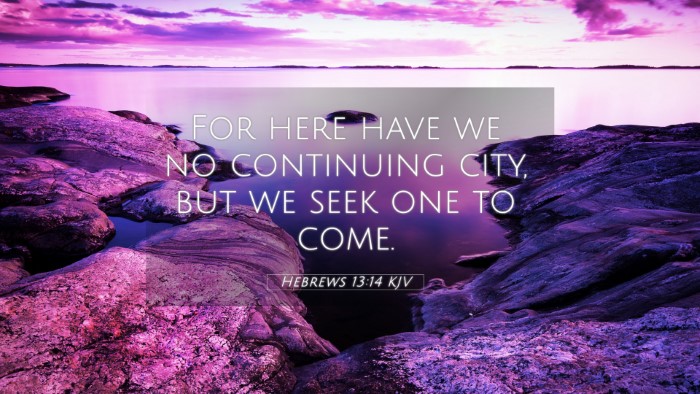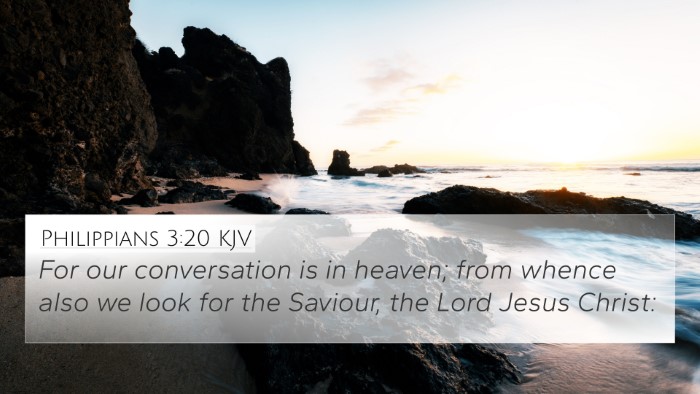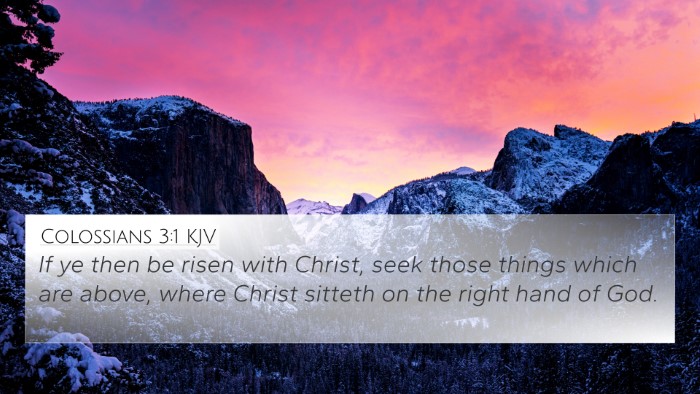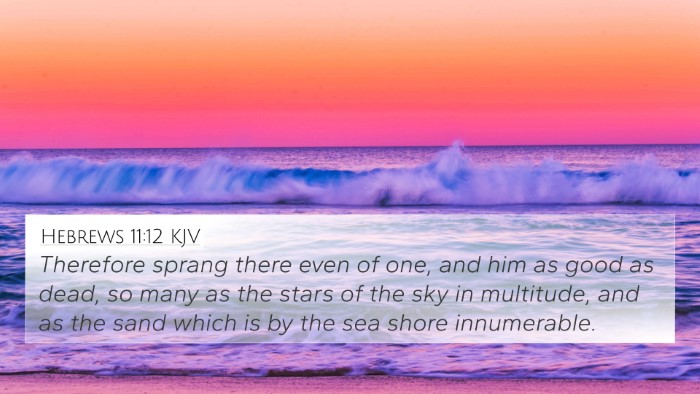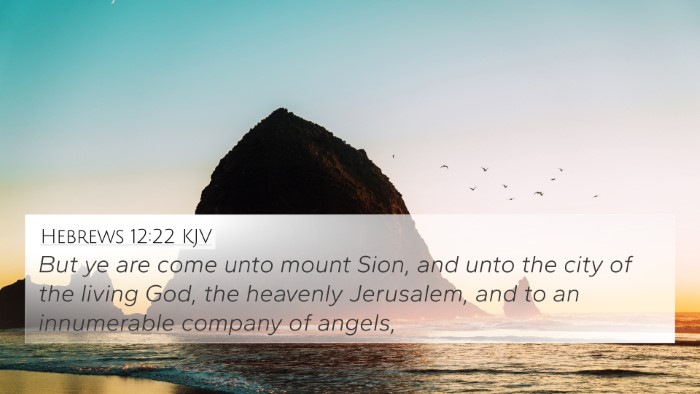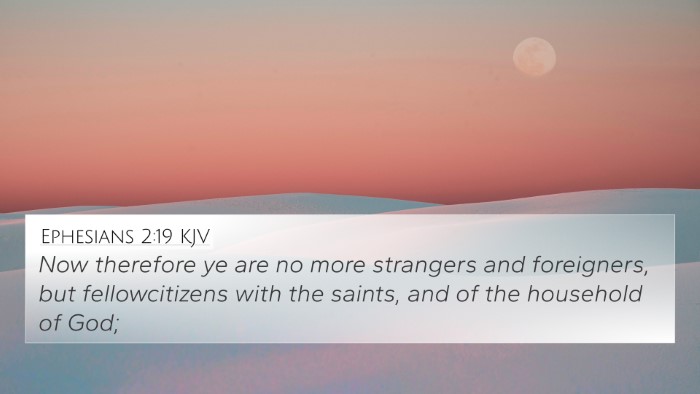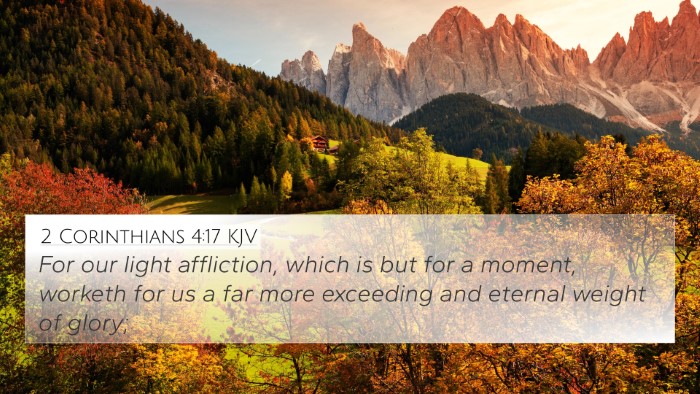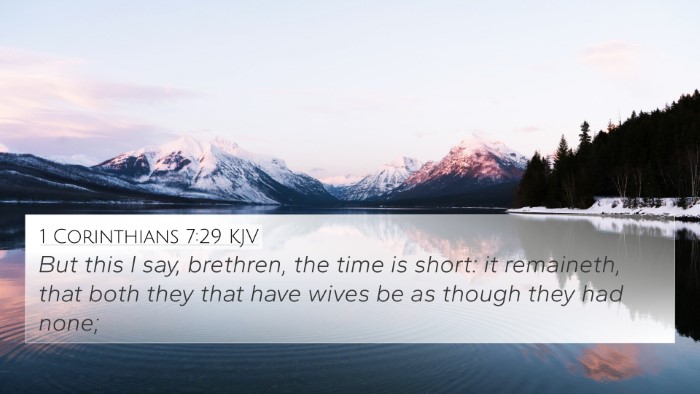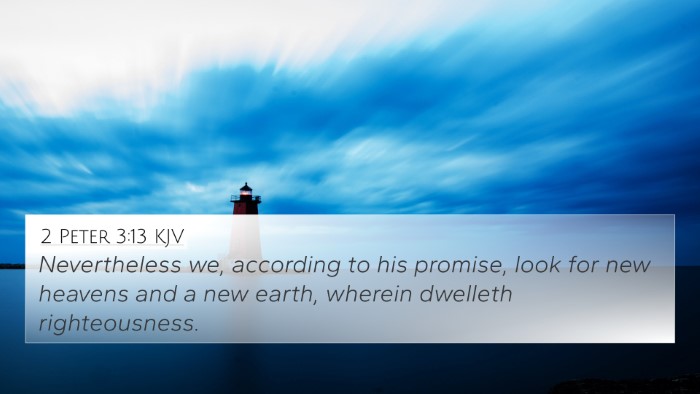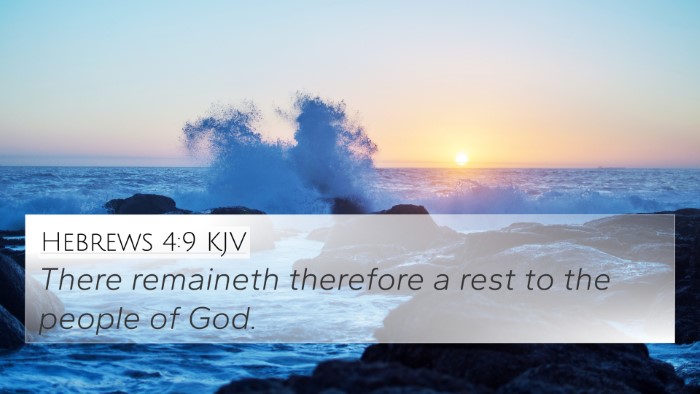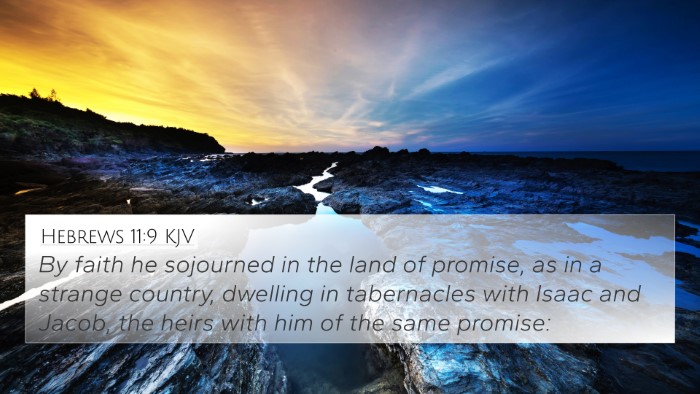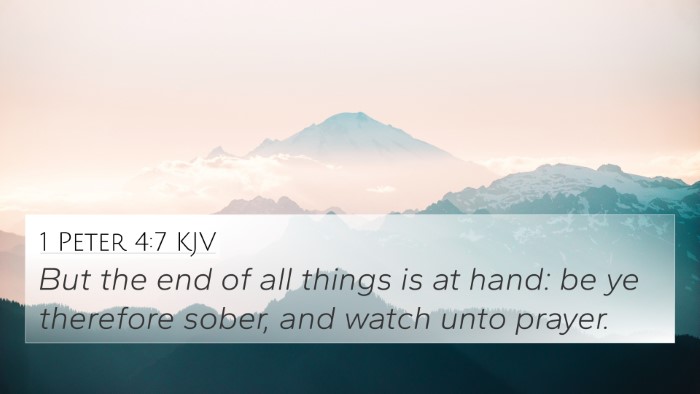Understanding Hebrews 13:14
Hebrews 13:14 states, "For we have no lasting city, but we seek the city that is to come." This verse encapsulates a profound truth about the transient nature of earthly existence and points believers towards the eternal hope of heaven, a theme that resonates throughout the entirety of scripture.
Context and Significance
The verse is situated within the concluding remarks of the Book of Hebrews, which addresses the Jewish Christian audience facing persecution and uncertainty. In these closing chapters, the author emphasizes the supremacy of Christ and the call for believers to endure in faith, even amidst trials.
Thematic Connections
This verse, highlighting the impermanence of this world, can be thematically linked to several other scriptures that discuss the idea of seeking a heavenly or enduring city as opposed to earthly possessions. Here are some core interpretations drawn from classic public domain commentaries:
- Matthew Henry: Emphasizes that this verse reflects an essential Christian truth: earthly cities are temporary, and true Christians must be focused on the eternal, heavenly kingdom to come.
- Albert Barnes: Discusses the nature of the “city to come,” interpreting it as the heavenly abode of believers, which offers rest and fulfillment beyond the struggles of earthly life.
- Adam Clarke: Notes that the desire for the city that is to come requires a mindset shift, urging believers to prioritize spiritual values over the temporal allure of worldly possessions.
Bible Verse Cross-References
Hebrews 13:14 finds profound connections and insights when cross-referenced with several other scriptures. Here are notable Bible verse parallels:
- Philippians 3:20: "But our citizenship is in heaven, and from it we await a Savior, the Lord Jesus Christ." This verse mirrors the concept of looking beyond earthly challenges towards heavenly assurance.
- Revelation 21:2: "And I saw the holy city, New Jerusalem, coming down out of heaven from God, prepared as a bride adorned for her husband." It establishes a visionary picture of the eternal city promised to believers.
- 1 Peter 2:11: "Beloved, I urge you as sojourners and exiles to abstain from the passions of the flesh, which wage war against your soul." This verse reinforces the idea of believers being temporary residents in this world.
- Matthew 5:14: "You are the light of the world. A city set on a hill cannot be hidden." It contrasts earthly cities with the divine purpose of believers, emphasizing the light they bring in a dark world.
- 2 Corinthians 5:1: "For we know that if the tent that is our earthly home is destroyed, we have a building from God, a house not made with hands, eternal in the heavens." This reinforces the idea of a permanent home in contrast to our temporary earthly existence.
- Hebrews 11:10: "For he was looking forward to the city that has foundations, whose designer and builder is God." This verse captures the faith of Abraham in seeking a divine city.
- Colossians 3:2: "Set your minds on things that are above, not on things that are on earth." This verse illustrates the need for a perspective focused on heavenly realities rather than earthly distractions.
Comparative Bible Verse Analysis
Analyzing these verses collectively sheds light on the main theme of Hebrews 13:14—the impermanence of the world versus the permanence of heavenly hope. Each referenced verse engages in a unique dialog about spiritual priorities, capturing the essence of a Christian's journey through life.
Tools for Bible Cross-Referencing
For those seeking to explore these connections further, several tools and methods can enhance cross-referencing Bible studies:
- Bible Concordance: A comprehensive reference tool that allows users to find where particular words appear in scripture.
- Cross-reference Bible Study: Methodologies focused on tracing thematic links between scripture passages.
- Bible Chain References: These systematically connect related verses, creating a flow of scripture supporting various theological themes.
Applying Scripture
As believers reflect on Hebrews 13:14, they are encouraged to implement these insights in their daily lives. This requires a deliberate focus on spiritual endeavors, a reevaluation of priorities, and steadfast hope oriented toward eternity.
User Intent Keywords
For anyone looking to delve deeper into the connections of Hebrews 13:14 with other verses, they might ask:
- What verses are related to Hebrews 13:14?
- Find cross-references for Hebrews 13:14.
- How do Hebrews 13:14 and Philippians 3:20 connect?
- Similarities between Hebrews 13:14 and 2 Corinthians 5:1.
- Bible verses that support Hebrews 13:14.
Conclusion
Ultimately, Hebrews 13:14 serves as a vital reminder that Christians are called to fix their gaze on the eternal, recognizing the fleeting nature of worldly life. By using cross-referencing tools and studying scripture in connection to this verse, believers can deepen their understanding and strengthen their faith in the promises of God.

